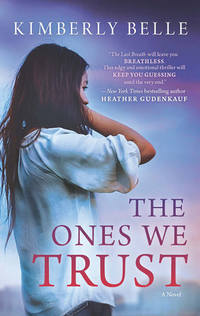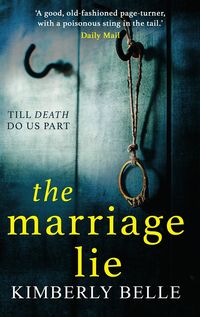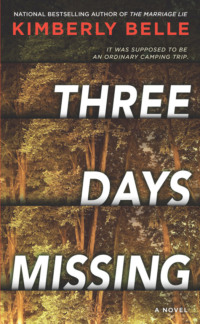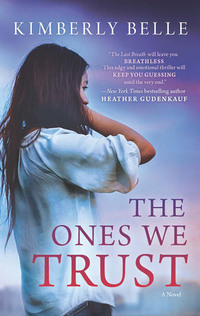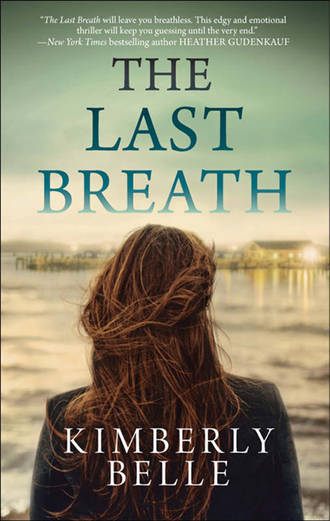
Полная версия
The Last Breath
“Let’s get back to our guests, shall we?” Ella Mae slid the last piece onto a plate and pointed Ray to the forks. “And be nice. I’m looking to make a new friend.”
Over the course of the next hour, Ella Mae tried. She honest-to-God tried. She asked Allison about her kids and if the girls played any sports. She asked about her favorite books and if Allison would be interested in joining the book club. She even offered to take Allison on a tour of the town and show her the best places to shop. Allison was painfully shy, said all of ten words over the course of the entire meal. By the time they moved outside for coffee and brandy on the porch, Ella Mae regretted her offer, and she dreaded those hours alone in a car with Allison.
Her gaze landed on Dean, sipping on a glass of Ray’s best brandy and looking more comfortable in his skin than an out-of-town semistranger should. Talk about opposites attracting. Dean was gorgeous and funny and charming, and for the life of her Ella Mae couldn’t figure out what a man like him saw in quiet, mousy Allison.
Three hours alone in a car with him, on the other hand...
Dangerous. Just thinking about Dean in that way was dangerous. Ella Mae flushed to the tips of her ears, and she gave herself a good scolding. Married women should not be thinking naughty thoughts about their equally married new neighbor, no matter how sexy he might be.
And then Dean laughed, a low and raspy sound that resonated somewhere deep in Ella Mae’s belly.
Oh, God. She was thinking naughty thoughts about Dean Sullivan again.
“Thank you again for dinner,” Dean said, his gaze lingering on Ella Mae a smidge longer than necessary. “I can’t imagine a more perfect greeting on our first night in town.”
“You’re welcome anytime.” Goose bumps tightened her skin, and Ella Mae looked away, out over her backyard, blinking into the inky blackness. There. Much better.
“And thanks for asking Gia to hang out with the girls tonight. I keep telling Allison they’re old enough to—” Dean broke off at his wife’s sharp look. “Well, we just worry.”
“Our younger daughter was diagnosed with Type I diabetes last June.” Allison’s voice was quiet as ever, but for the first time, Ella Mae heard footprints of fire in her tone. “Gave us quite a scare.”
Ella Mae felt a familiar tug, like some sort of phantom limb in her uterus, at the mother’s worry she saw in Allison’s expression. She loved Ray’s three kids fiercely, honestly she did, but it wasn’t the same kind of love she had for her own flesh-and-blood child.
“That must have been terrifying,” Ella Mae said.
“It still is,” Dean said. “Every time we think we have things under control, Caroline gets the flu or has a growth spurt, and we have to adjust her diet and insulin.” Dean turned to Ray, gave him a wry smile. “I have a feeling we’re about to become the pharmacy’s new best customers.”
Finally, a subject that got Ray to smile, really smile, and he puffed out his chest. “Glad to hear it. Though lucky for you, the money won’t be coming from your pocket. The school system recently overhauled their employee insurance plan, as I’m sure you know. I was an advisor to the task force.”
“Then I should thank you, since their plan is one of the reasons we moved here. There aren’t many plans out there robust enough to cover anything more than the bare minimum of insulin.” Dean shook his head, made a sour face. “No matter what you think of her husband’s politics, Hillary Clinton is right. The health care system in this country is flat-out broken.”
Ella Mae winced. Uh-oh. Dean had said the C-word.
Ray grew about four inches in the wicker chair, and his tone took a turn for the nasty. “Now I know politics in Chicago are a whole lot bluer than down here in the South, but let me assure you in no uncertain terms. Hillary’s plan is a disaster. Too top-heavy, far too regulated. Anybody who thinks it would work in the real world, isn’t living in the real world.”
Unlike his neighbor, Dean didn’t seem to get the least bit riled up. He lifted his lips in a friendly smile, crossed his legs casually at the ankle. “I’m living in the real world, Ray. And my world has gotten a lot more expensive since our plan back home dropped the coverage for dependents. Do you know how expensive it is to find insurance for a kid with diabetes? I’m not saying she’s not worth every penny. Just that her care is expensive and that clinics and hospitals seem to be in the business of making sure she stays sick, instead of caring about her health.”
Ella Mae popped out of her chair. “Ray, honey, would you like some more Scotch?”
Ray raised his glass in the air, jiggled it around. Dangit. Still a good two fingers left.
She whipped her head around to Allison. “More ice water?”
But Ray wasn’t to be distracted, and he turned back to Dean, his tone and stance on edge. “I’m not saying the insurance system isn’t broken, Dean. Just that the healthcare system is fine as it is, and the Clintons should concentrate on what’s really ailing this country—the economy.”
“Then what do you suggest for families like mine?” Dean’s voice was as amiable as ever. “One whose employers drop the dependents from their insurance plan when one of their employee’s family members is diagnosed with a chronic or life-threatening illness.”
Before Ray could respond, Ella Mae stepped in front of him, blocking his view of Dean and reaching for his still full glass, and giving him a look that left no doubt as to how quickly he needed to stop picking a fight with the neighbor. “How about I refresh y’all’s glasses?”
“That’s all right, darlin’.” Ray clenched his jaw and stood, snatching back his glass. “I’ll go in and do it myself.”
And then he went inside without another word, without catching the screen door so it didn’t slam shut behind him.
Ella Mae sank back into her chair, and the three fell into an awkward silence punctuated by the angry cry of a cicada.
Allison broke it first, standing, smoothing her skirt. “I better get back to Caroline. Thank you for a lovely night, Ella Mae. Will you thank Ray for me, as well?”
Ella Mae cleared her throat. “Of course. I’ll see you tomorrow.”
At the bottom step to the side yard, Allison paused. “You coming, Dean?”
Dean pushed off the railing to go and then thought better of it. “I’ll be over in just a minute. I want to wait for Ray, apologize for getting him so riled up.”
“Oh. Okay, then.” Allison glanced at Ella Mae, smiled stiffly and then disappeared, swallowed up into the shadows. “Don’t be long,” came her voice from across the yard.
“I won’t.” Dean’s answer was distracted. His attention was elsewhere. On Ella Mae elsewhere.
Ella Mae went as still as an opossum on a country road. Across the lawn, a door squeaked, fell shut with a click. Inside Ella Mae’s house, the low notes of a TV hummed. Ella Mae was breathless. Her heart might have even stopped beating. She was alone with Dean Sullivan on the porch, and something about the way he looked at her made her think he’d been waiting all night for this moment.
“Seems we chased everybody away,” Dean said.
“Not that far away.” Ella Mae’s tone held a note of reckless warning, her eyes a flash of daring. Daring him, and maybe also herself.
A breeze kicked up on the front lawn, chilling Ella Mae’s skin and tickling her nose with the scent of honeysuckle. This was the tipping point, Ella Mae knew. Dean could get up now and walk away, go home to his new house and boring wife and sleeping daughters, or he could send them both into a frenzy.
He turned and leaned his elbows onto the railing, staring off into the black night. “I love it here already. And that view is sure something else.” He glanced at Ella Mae over his shoulder. “Too bad we can’t see it now because it’s pretty spectacular, don’t you think? Especially now the leaves are about to change.”
Ella Mae said nothing.
He straightened and whirled back around, and his dark gaze found hers immediately. “Principal Whitehead told me I’ve not lived until I’ve seen Great Smoky Mountains Park. Are the trees there as pretty as he says?”
Trees? He was really talking about trees? Disappointment spread across her skin like a bruise, and she reprimanded herself for it. “He’s right. They are pretty.”
“What’s that, about a forty-five-minute drive?”
She bit her lip, nodded again.
And then his mouth rode up into a wicked smile. “Do you think that’d be far enough?”
Ella Mae’s heart took off in a wild gallop.
Frenzy. Definitely frenzy.
4
IN MANY RESPECTS, returning to Rogersville after all these years feels a lot like my life in the field. Families torn apart by tragedy. A disaster that’s at best chaotic and unpredictable and far, far out of my control. And at the end of the day, an almost desperate quest for distraction from the doom brewing all around me, even if only for a few hours.
I squeeze my rental between an ancient Chevy and a mud-encrusted truck, wriggle myself out and peer over its roof at my destination. Square and stout, the building’s restored bricks and a fresh coat of paint gleam under old-fashioned gas lamps and the fading evening light. My gaze travels to the thick white letters painted across the picture window to the right of the door. Roadkill Bar and Grill.
Distraction in the form of cold beer and flattened rodents.
The door swings open with a blast of country music and the scent of something delicious. Truffles, maybe. Truffles? A couple steps out onto the sidewalk, their jackets hanging open as if it were fifty degrees out instead of hovering somewhere just above twenty. At the edge of the sidewalk, the man stops to dig around in his pockets for his keys.
“But hasn’t he already been punished enough?” his date says, picking up their conversation with a toss of her drugstore dye-job hair. “I mean, he is dying of cancer.”
“Good,” the man says. “He murdered that woman, and now he deserves to die. An eye for an eye and all that.”
A high-pitched giggle. “This is America, not Afghanistan.”
I don’t want to hear this conversation. I don’t want to hear it, and yet I can’t seem to stop listening. It’s as if I’m rendered powerless by the spectacle unfolding in front of me, like staring into a black hole or accidentally discovering the hotel TV offers free porn. Curiosity takes over, and I have to stay until the very end. I duck my head and pretend to search through my bag, my ears practically flapping off my head.
I hear what can only be the sound of male spit hitting pavement. “Damn straight, this is America. And this here’s American justice at its finest. That old man is getting exactly what he has coming to him.”
“I don’t think you can credit the justice system for giving an old man cancer. Jesus Christ, maybe, but not the justice system.”
“Freeing a convicted murderer ain’t justice, that’s for damn sure.” Keys jingle, and their footsteps take off in my direction. “In my book, life in prison means dying in prison.”
Another giggle followed by a playful slap. “Tommy Aldean, since when did you write a book?”
“I’m the next Dan Brown, sweetheart. Guaran-damn-teed to be a bestseller.”
By now they’re coming up alongside me, and I bend and retie my tennis shoe even though the lace is still snug. None of my sneaky surveillance moves are necessary. They’re not paying me the least bit of attention.
He loops an arm around her neck and pulls her close. “And if you lift that pretty little shirt of yours, I’ll pull out my Sharpie and sign your chest.”
She swats his arm and acts offended, but ten thousand Kenyan shillings say Tommy Aldean’s Sharpie will be making an appearance later on tonight. They stop to make out on the sidewalk and I stumble off, their words ringing in my ears.
Small town. Big goddamn scandal.
Sixteen years is a long time to be away from anywhere, with the possible exception of Rogersville, Tennessee. The land that time forgot.
If only I could forget that time.
Murderer. Convicted felon. The taunts and accusations rattle through my brain and stir up old muck, suddenly as real to me as the sidewalk under my sneakers. Innocent until proven guilty sounds nice in theory, but it’s a fairy tale. For the citizens of Rogersville, my father was a murderer long before the police put him in handcuffs. As far as they were concerned, the verdict was merely a technicality.
And now, Tommy Aldean and his bleached blonde just confirmed what I already knew. The Andrews family gossip rating is still at an all-time high. Our drama is still a favorite topic, our tragedy still local folklore.
I tell myself this time around will be different, that I’m older now. Older and wiser and toughened up by a job that has required me to grow a giant pair of testicles—not literally, of course, though I’m known to employ tactics in the field that make my colleagues wonder aloud at the contents of my pants. Regardless, I’m determined to handle things better. More maturely. Or at least, with not quite as much vomiting and public weeping.
I square my shoulders, pull open Roadkill’s heavy oak door and step into my past.
* * *
The music doesn’t screech to a halt when I walk through the door. Mouths don’t hang open; eyeballs don’t bug out; forks don’t pause in midair. No one really notices me at all, an occurrence I find relieving and strangely anticlimactic at the same time.
I weave a path through the sleek wooden tables to a stool at the far end of the bar, picking out a few familiar faces along the way, trawling through my memory banks for matching names. I’ve kept in touch with no one here beyond my own siblings, and without old yearbooks (trashed) or high school reunions (avoided) to keep the synapses connected, the endeavor is hopeless. I shrug off my coat, hang it on a hook under the bar and turn my attention to the drink specials on a chalkboard menu above the bar instead.
A loud thunk punctuates the music and I shift on my stool, twisting my torso to face the man pushing through the swinging door from the kitchen. Dark hair, three-day beard, ruggedly handsome enough to prompt an appreciative murmur from a gaggle of women behind me, but diplomatic enough to pretend not to notice. He sees me, and surprise flashes across his expression. I blink and it’s gone.
“Sorry.” He sets a crate of steaming wineglasses onto the bar and swipes his hands over his black apron. “Hope you haven’t been waiting long.”
“Nope, just got here.”
He cocks his head and inspects me, and an icy shiver skates down my spine. It’s this breathless moment I hate the most, that moment of waiting for recognition to hit, waiting on the verdict for a crime I didn’t commit. His gaze travels over my curls and across my face, dipping even farther down to my vintage Rolling Stones T-shirt under an ancient wool cardigan. When his expression settles into one of resolute opinion, I reach for my coat.
“Beer,” he says, “but only when there’s nothing else better. An occasional cocktail, but not sweet. Vodka with soda and a lime or straight up. But first choice would be wine, preferably red and preferably imported.”
Relief hits me like a Valium at both his innocuous message and his speech, deep and clipped with a generic accent. No nasal twang, no elongated vowels to tell me where he’s from, except that he’s not from around here. I drop my coat back onto the hook, settle back onto my stool.
But as far as drinks go, the man has me pegged.
“Well?” An undertone of mock uncertainty slips into his voice, playing bass to his lighthearted teasing. “How’d I do?”
“Pretty decent. Extra credit if you can actually produce the imported red.”
The bartender grins like he just pulled the winning numbers for the Tennessee Mega Millions, and I feel myself relax the slightest bit. Flirting with handsome strangers in crowded bars? Now I’m back in familiar territory.
He slides a bottle of Bordeaux from the wine refrigerator behind him and sets to work uncorking it. “Did you know in Tennessee it’s legal to take roadkill home and eat it, whether you’re the one who creamed it or not?”
“I hope that doesn’t mean you’re planning to serve me skunk stew. Because I’ve tried it, and just between you and me, yuck. Ditto for opossum pie.”
He perches on an elbow and glances over both shoulders in an exaggerated fashion, sending the tips of his hair brushing along the collar of his V-neck T-shirt. “Don’t let the chef hear you. He’s a little sensitive about his food. He once tossed a customer out for complaining his raccoon ragù was too salty.”
“Which is, of course, ridiculous because everyone knows the only way to cook raccoon is by boiling it in salt water.”
The bartender leans back, and a brow creeps upward. “And here I thought you were a Roadkill virgin.”
“Virgin!” A familiar, throaty laugh tickles my ears, and I whirl around on my stool to face my grinning sister. “Not since Andrew Hopkins’s parents let him borrow their brand-new station wagon sophomore year.”
“Better than the bathroom at Burger King, where you lost yours.”
“That was a vicious rumor.” Lexi leans in, giggling, her breath hot on my neck. “And it was Kentucky Fried Chicken.”
A laugh pushes up my throat followed by a hot sob, and I launch myself at my sister. I wrap my arms around her and bury my face in her hair, inhaling her familiar floral scent, blinking back the tears heating the corners of my eyes. I don’t remember much of our mother—I was only five when she crashed her car into a tree—except for this feeling of love. Love so large I think my heart might explode. Love so fierce it hurts to breathe.
“Let go, Gi. You’re suffocating me.” Lexi wriggles her hands in between us and pushes me to arm’s length. The skin around her eyes crinkles in a smile. “And besides, I want to get a good look at you.” She surveys me up and down, her gaze settling on the denim hanging loose from my hips. “Good Lord, you’re a walking advertisement for anorexia.”
“And you are as gorgeous as ever.” Honey hair that falls perfectly straight down her back, bowed lips curved into a flirtatious smirk, sinuous limbs begging to be draped over the hood of a Corvette. My sister may be a little older now, her designer denim a little tighter, but Sexy Lexi Andrews is still every inch Miss Cherokee High three years in a row.
She turns and smacks a palm on the bar, demanding the bartender’s attention. “Jake, you handsome devil, have you met my sister Gia yet?”
If Jake is surprised this is a family reunion, he doesn’t show it. He flicks the towel over a shoulder and extends a long arm over the bar. “Jake Foster. Nice to meet you, Gia.”
His grip is firm, his hand warm and smooth in mine. “Nice to meet you, too.”
“Fire up your fry-daddy,” Lexi tells Jake. “We’ve got to get some meat on my sister’s bones, pronto.” She winks at me. “There’s not a soul within fifty miles who’s not put on at least ten pounds since Jake opened this place five years ago. Wait’ll you taste his food. You’ll know why he’s got girls all over town flinging their panties at his front door.”
Jake gives her an appreciative grin and pours two generous glasses of wine. When he tells us about the special—seared duck breast and oven-roasted kale and sweet potato hash smothered in jus—my mouth waters and I smack my lips. Jake notices, and he gives me a cocky grin.
“Don’t laugh,” I say. “My last real meal was a watery stew with questionable chunks of what the cook swore was goat. The stray dog population took a hit that day, though, so I don’t think he was being entirely honest.”
“I don’t know whether to be offended or relieved,” Jake says.
Lexi snorts. “Try disgusted.”
He throws back his head and laughs, a deep rumble that vibrates through my bones, and then disappears into the kitchen with a twirl of his towel and our orders.
As soon as he’s gone, I whirl on my stool to face Lexi, and the words tumble out of my mouth like stock cars at the Bristol Motor Speedway, racing to the finish line. “Did you know that vice principal Sullivan still lives next door—his house is a dump by the way—and is a raging alcoholic?”
“That’s not exactly a 411, you know. By now that man’s liver is so pickled, you could batter it, fry it and serve it on a platter.”
“And his family? What happened to them?”
Lexi sips her wine. “Gone. Hightailed it out of here after what must have been his fourth or fifth DUI.”
The professor’s words—What do you think he’s hiding from?—skitter through my mind, but I switch gears. Dean Sullivan’s fall from grace, though intriguing, is the least of my worries.
I move on. “This law professor from Atlanta came by the house earlier, and you wouldn’t believe what he said about Dad.”
Lexi scowls and plunks down her wineglass, her gaze fishing over my right shoulder. “Why is it that every time somebody gets saved at Light of Deliverance church, they turn into a dowdy old frump? Surely that outfit can’t be what Jesus intended for his fans.”
I don’t bother checking. My sister is the Carrie Bradshaw of Appalachia, and not many people can live up to her fashion standards. And besides, I know this tactic. By interrupting me with some ridiculous nonsense, Lexi is hoping to distract me from a subject she hasn’t spoken more than a few words about in almost sixteen years: our father.
“I think they’re called followers,” I say, not backing down, “and we were talking about Dad’s case.”
“Whatever. That woman is a What Not to Wear episode waiting to happen. Oh, Lord. Now she’s passing out flyers.” She snorts and rolls her eyes. “Probably for their next snake handling.”
“Could you focus, please? This professor is writing a book about wrongful convictions. He thinks Dad’s is one of them.”
And now, I think, I’ve got my sister’s attention. Her gaze whips to mine, her good-humored expression fades and her brows slide into the ghost of a medically frozen V. She reaches for the wineglass and drains it, knuckles tightening ever so slightly around the stem. And then she dabs her glossy lips with a napkin and the storm on her face vanishes as quickly as it came, like a twister sucked up into a dissolving cloud.
“You’d think people would’ve heard by now that snake bites everybody.” Her voice is a little too loud, and a lot too vehement. “Even holier-than-thou Bobby Humphrey. By the time they got him the antivenom, he was foaming at the mouth. Besides, I thought the whole point was prayer, not antivenom. Isn’t that kind of cheating?”
“Lexi! We have to talk about Dad.”
She leans across the bar, snatches the bottle of wine and fills her glass to within an inch of the rim. “The hell we do.”
A familiar frustration ties a string of knots across my shoulders. My sister has always been a great believer in the power of denial. How else can I explain her staying in the one place where she will always be the murderer’s daughter?
But what if what Jeffrey Levine said is true? What if all this time, I’ve been running from something my father didn’t do?
“Did you hear me? This professor thinks Dad might be innocent. What if he’s right?”
She shakes her head definitively, almost violently. “He’s not.”
“But what if he is?”
“He’s not!” she shrieks, shrill enough that I jump. Everyone jumps, in fact. A young couple at a table to our left, three friends sharing a plate of fried calamari at our backs, two pot-bellied men in trucker hats three stools down. Even Jake looks up from the beer he’s pulling at the opposite end of the bar, and hell’s bells, I catch pity in his expression.
But Lexi has always preferred the part of sexy bombshell over damsel in distress, and really, who can blame her? Our life has been distressing enough. She tosses him a beauty-queen smile and reaches for her wineglass with a shaking hand, and all around us, conversations pick back up one by one.
I lean close, lower my voice. “Why do you refuse to discuss the possibility he may not be guilty?”


